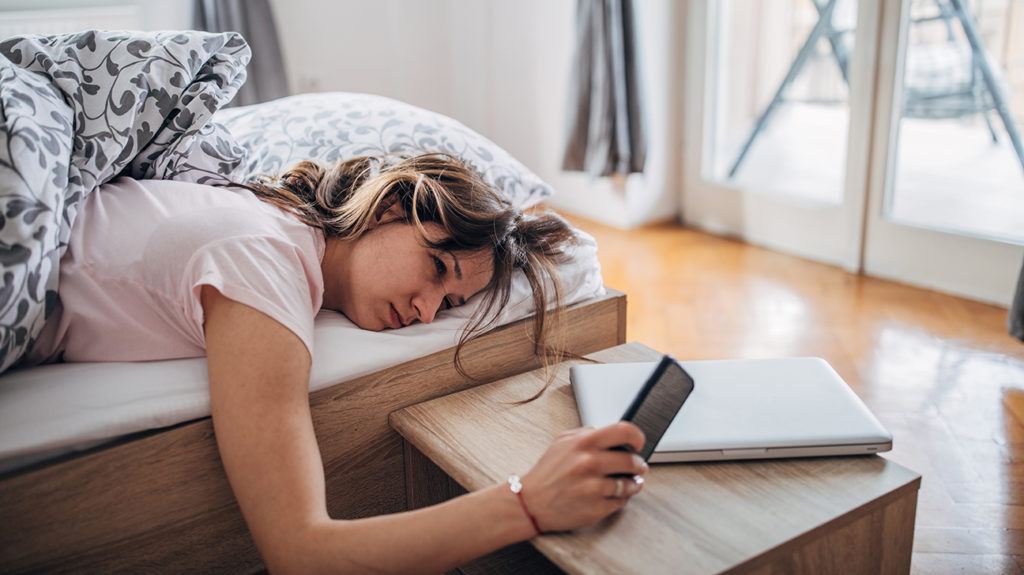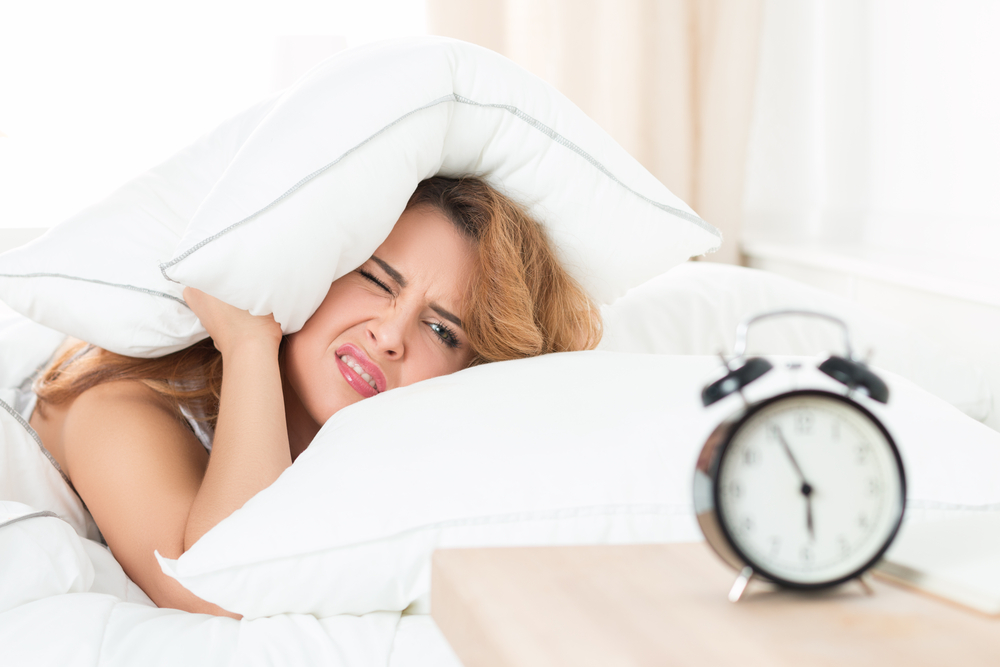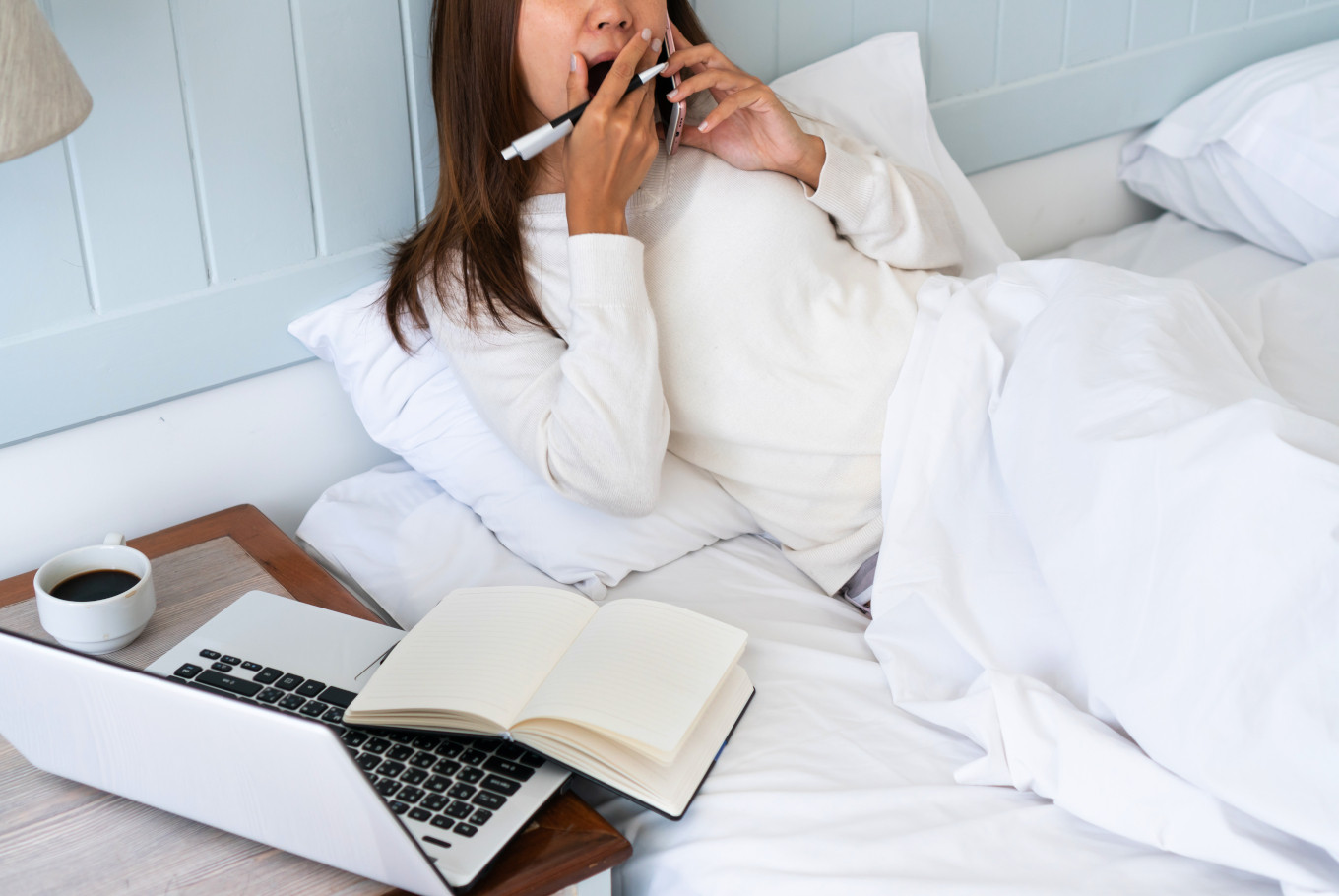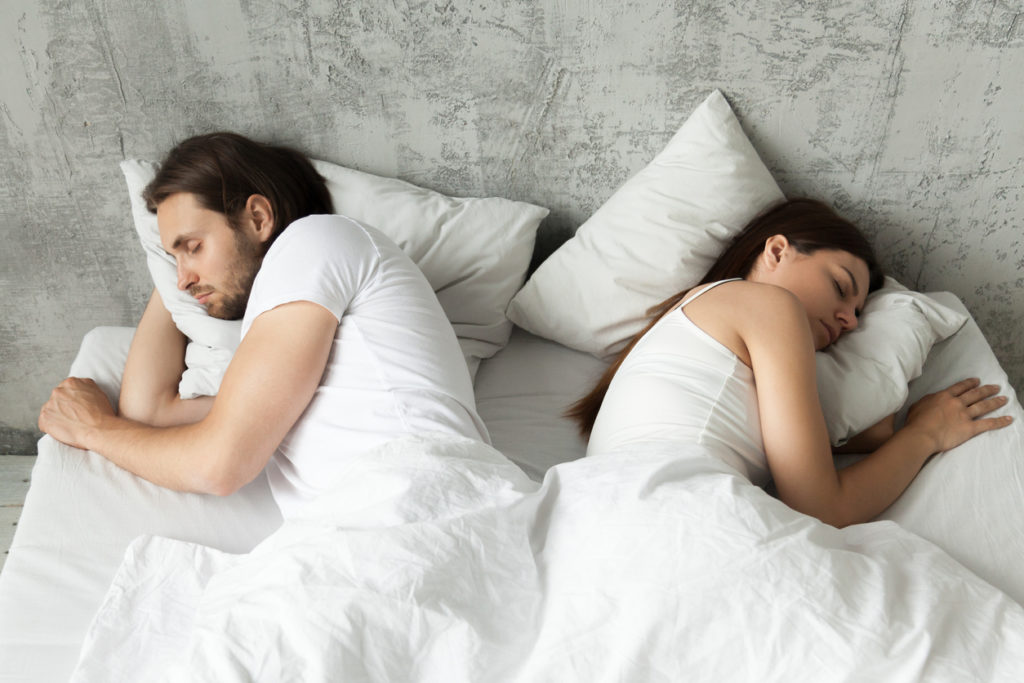Between caring for the kids, cleaning the house, and maintaining professional responsibilities, sleep can start to seem like a luxury. That’s why learning how to get your best night’s sleep when, let’s be honest, you have such little time for it, is important. A loss of sleep can have detrimental effects on your day to day. It can impede your ability to think, reason, and problem solve. It has also been known to age your skin, cause weight gain, and causes many issues that no one wants to deal with.
Whether you’ve been having trouble falling and staying asleep, or simply want to get the best sleep you’ve ever had, here are a few simple sleep tips and tricks you can follow to easily improve your nightly sleep quality. You’ll be sure to get a revitalizing sleep every single night thanks to these expert-approved tips.
Yes, you can wake up refreshed. Knowing how to handle your shut-eye habits will set you up for a restful night.
Here are 5 Common Sleep Issues and How to Solve Them.

1. YOU FEEL BOTH TIRED AND WIRED
Your issue: “Exhausted” best sums up how you feel when you go to bed, yet your mind won’t stop racing. You toss and turn for hours, then feel drained in the morning.
Your fix: Give yourself a decent amount of time to wind down fully before you crawl into bed. “Think of your life as a dimmer switch, where you gradually ease yourself into sleep mode, rather than an on/off switch,” recommend Norah Simpson, PhD, clinical assistant professor in the department of psychiatry at Stanford University. “To help get into that mindset, try taking a warm bath or shower and reading a calming book—no thrillers or intense dramas!—that will put you in a sleepy frame of mind.”

2. YOU WAKE UP TOO EARLY
Your issue: You set your alarm for 6:45 a.m.—too bad you woke up an hour earlier. You feel groggy and tired, but you can’t drift back off. You sleep lighter in the early morning hours, so even moderate light and noise can wake you, such as chirps from a bird outside or the sound of a neighbor’s garage door opening.
Your fix: If this is a longtime issue, the truth is that your internal body clock may be set for early morning. Hint: Maybe it’s time to stop binge-watching Netflix till midnight so you can regularly fall asleep earlier. “You also want to minimize anything that’s even slightly disturbing,” says Frisca Yan-Go, MD, professor of neurology at the University of California, Los Angeles. Hang blackout curtains to limit early morning light peeping in, turn your phone to airplane mode before bedtime (or, better yet, charge it in another room) or sleep with silicone earplugs to shut out errant noises.

3. YOU WORK AT NIGHT
Your issue: If your job has you on an after-dark schedule, you may feel like you’re always running on empty. Daylight is key to regulating your body clock, so sleeping while the sun is shining can throw off the sleep/wake cycle. Besides, it can be hard to fall asleep when there are blue skies—not to mention family demands and social events.
Your fix: The ideal is to have a consistent daytime sleep/nighttime wake schedule. Your reality is another story—especially if you have kids. Try this, suggests Cathy Goldstein, MD, assistant professor of neurology at the University of Michigan: On the weekend or your day off, go to sleep in the morning right after you get home, wake at 1 p.m., and then live like a rock star by staying up until 3 a.m. and getting up at 11 a.m. That way, you’ll feel less tired than if you tried to go right to a typical day/night schedule. Keep your bedroom dark and quiet, and time meals and other activities to suit your new “day.”

4. YOU ARE RESTLESS
Your issue: Your partner has rolled over, creating a mini mattress earthquake, and now you’re wide awake at 2 a.m. He’s not fully to blame—if you ate a dinner high in saturated fat, such as a burger and fries, it can set you up for wakefulness since your digestive system has to work overtime to break down these foods. Saturated fat can also disrupt the balance of bacteria in your belly, and potentially lower the production of serotonin, a hormone that relaxes your body. Wine is another culprit: A glass (or two) may help you nod off, but tends to interrupt your sleep cycle later on.
Your fix: The ideal sleep-inducing dinner is a mix of two key things: lean protein (such as tofu, turkey, skinless chicken breast .or salmon) and complex carbohydrates (think lentils, sweet potato and quinoa). This combo has been shown to stimulate calming neurotransmitters that help you doze off. If you’ve been lying awake in bed for 20 minutes or so, “whatever you do, don’t take a look at email or go online,” cautions Dr. Goldstein. For one, it could make you worry about the coming day. Instead, head to another room and read or do something else restful with the lights dimmed.

5. YOU STRUGGLE SLEEPING NEXT TO YOUR PARTNER
Your issue: You’re lounging in bed at 9:30 p.m., finishing up your book club read and looking forward to a nice catch-up with your TV-watching partner. Next thing you know, he’s snoring.
Your fix: The best remedy if you’re a night owl/early bird duo: communication. As Simpson notes, “Some couples compromise on a preferred bedtime, while others adjust to shared middle-ground time on the weekend.”

Recent Comments